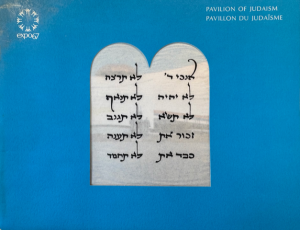 MONTREAL — Reflecting a burgeoning Sephardi demographic in Cote St. Luc, a new synagogue has emerged: the fledgling Synagogue Ram’hal, which operates from rented quarters at Beth Israel Beth Aaron Congregation, an Ashkenazi shul.
MONTREAL — Reflecting a burgeoning Sephardi demographic in Cote St. Luc, a new synagogue has emerged: the fledgling Synagogue Ram’hal, which operates from rented quarters at Beth Israel Beth Aaron Congregation, an Ashkenazi shul.
Rabbi Raphael Afilalo
The synagogue, which is fully incorporated as a non-profit institution, opened officially on Nov. 19, and its spiritual leader, Rabbi Raphael Afilalo, said it arguably marks the first time two independent congregations – each with its own rabbi – are coexisting under one roof.
“I don’t think there is a precedent for this,” said Rabbi Afilalo, who is also director of pastoral services at the Jewish General Hospital. “We’re very enthusiastic about it.”
He described the Synagogue Ram’hal as “modern Orthodox” in its orientation, with an emphasis on Zionistic values, and “traditionally Moroccan” in its rites. It has about 50 member families.
Rabbi Afilalo said the new synagogue reflects the mushrooming growth rate of the Sephardi community within Cote St. Luc, while Ashkenazi numbers tend to be diminishing.
Cote St. Luc’s one-time predominantly Ashkenazi Hebrew Academy school, for example, is now said to have about a 70 per cent Sephardi student population.
Sephardim are also migrating into Cote St. Luc from areas where the community traditionally lived in large numbers, such as St. Laurent and Côte des Neiges.
Reflecting the growing demand, Cote St. Luc Sephardi congregations now include well-established ones such as Or Hahayim and Beth Rambam, as well as Beth Chabad, Chouva Israel and an ever-growing number of smaller, less formally organized minyanim operating out of strip malls, residences, schools, basements, and even other synagogues, such as at the (Ashkenazi) Tifereth Beth David Jerusalem.
Some of the Sephardi minyanim names include the Ahavat Yisroel and Kol Yaakov congregations, the Ohel Rivka and new ones that spring up regularly.
For Rabbi Afilalo, the existence of separate Ashkenzi and Sephardi congregations under the Beth Israel roof reflects an important idea of unity within the Jewish community, where both adults and children from differing backgrounds will get to know one another better and find common bond and purpose.
“We are independent, yes, but we are also one kehillah [community],” said Rabbi Afilalo. “We all live on the same streets. Why not go to the same synagogue?”
Beth Israel’s longtime rabbi, Reuben Poupko, agreed.
“We see this as progress,” he said. “We’ve been looking for a suitable Sephardi partner for a long time. And this is an important step towards a united and more unified community.
“It’s about bringing the community together, and this is an important first step.”
The name of the synagogue – Ram’hal – is an acronym for 18th-century Italian Rabbi Moshe Haim Luzzatto, author of the Messilat Yesharim, considered one of the most scholarly books on Kabbalah.
Rabbi Afilalo himself is the author of several works on Kabbalah, among them The Kabbalah of the Ari Z’al, according to the Ram’hal.
The Synagogue Ram’hal’s services are being conducted at a chapel across from Beth Israel’s main sanctuary, beginning at 6 a.m. on weekdays, 7 a.m. on Sundays and 8:15 a.m. on Shabbat. A candlelighting ceremony takes place on Friday evenings.
Synagogue Ram’hal is holding study courses at Beth Israel’s library, Tuesdays at 8:30 p.m.; Zohar study on Thursdays at 8:30 p.m. and other study on Shabbat afternoons.
As well, the synagogue has supervised programs for young children on Shabbat mornings that include games, prayers and snacks.
More details are available by calling 514-774-5226. The e-mail address is, www.ramhal.org, and more information is available by e-mailing, [email protected], or by visiting the shul’s Facebook page.






